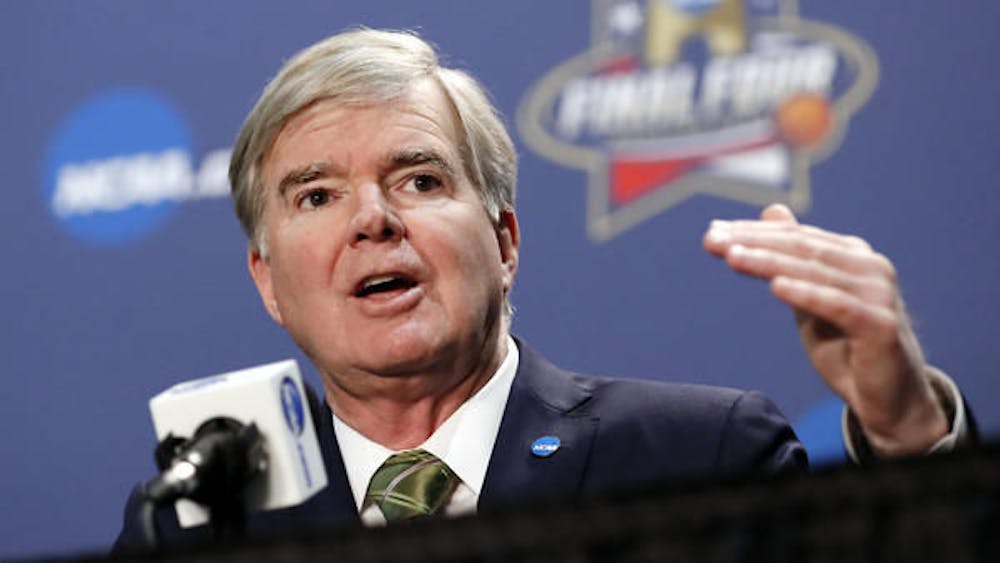College football has a problem.
OK, it has a litany of problems. But I’m not talking about the scandals it ignores or the baffling and arbitrary passing of judgement on schools’ violations.
If you’re a backup kicker for the 2017 national champion UCF Knights, and you can make money on YouTube with trick-shot videos, NCAA President Mark Emmert and his $2 million salary shouldn’t give you an ultimatum between that and your scholarship.
Basically, the NCAA’s problem is being overbearing tightwads who don’t see the benefits of paying its players.
No, this isn’t going to be the same tired argument about a powerful group of old white men shamelessly exploiting free labor to benefit both themselves and their corporate sponsors. I feel like that’s been explained by people more knowledgeable than I.
But let’s imagine we get sensible people to run what could eventually be — for lack of a better term — the NFL’s farm system. How could we make that work?
Salary caps.
Quick, who’s worth more: championship-winning Alabama quarterback Tua Tagovailoa or Texas State third-string kicker Foster Hilborn? Well, Tagovailoa obviously. So should he get paid more? Should there be limits on how much schools can pay players?
In a vacuum, I would say yes and no, respectively. As a patriotic American, I believe it’s your country-given right and duty to squeeze your employer for all that you’re worth.
But realistically, there has to be a salary cap in place in order to encourage healthy competition, and to make sure we don’t get another Alabama-Clemson matchup in the playoff. But I'm on board with paying one player any amount in that cap so long as you can still field a team.
For a small-scale example, let’s say each team gets $100, and they have 100 spots on their team. Alabama might think Tagovailoa is worth $20, a solid fifth of the team’s overall spending money. That’s not out of the realm of reality.
The Detroit Lions have about 20 percent of their salary cap tied up from paying Matthew Stafford. But the Crimson Tide would still have the rest of its roster to consider.
We aren’t talking anything extravagant in terms of caps. Let’s say each team gets $2 million to throw at talent. That’s $20,000 a player, which is about $5,000 above minimum wage yearly incomes. Combined with the offers of free housing, meal plans and the availability of an education, I think that’s a reasonable offer.
It also doesn’t break the bank for the schools. From 2014-16, a deal with Fox Sports gave Big Ten schools an average payout of $27 million per year. That distribution grew to $35.5 million in 2016-17, and it doesn’t even include schools’ individual licensing rights. Universities in the Power 5 are not exactly hurting for that $2 million.
So what about smaller schools?
The Texas States of the NCAA don’t get a lot of love out of this deal. They don’t have much bargaining power over television rights or sponsorships.
But with 65 schools in the Power 5 conferences, there ought to be enough revenue sharing to go around to the other 65 teams in the FBS. It’s an issue of shifting the burden of good football onto $40 million paid out to some SEC schools, or the $35 million that each Big Ten school receives. Ask yourself: Does Rutgers deserve any of that money for being the Eric Trump of that conference?
Not any more than Texas State does.
You know who does deserve that money?
The players.
Morgan McMullen is the online sports editor of the Alligator. Follow him on Twitter @MorganMcMuffin and contact him at mmcmullen@alligator.org.
NCAA President Mark Emmert's contract goes through October 2020.






